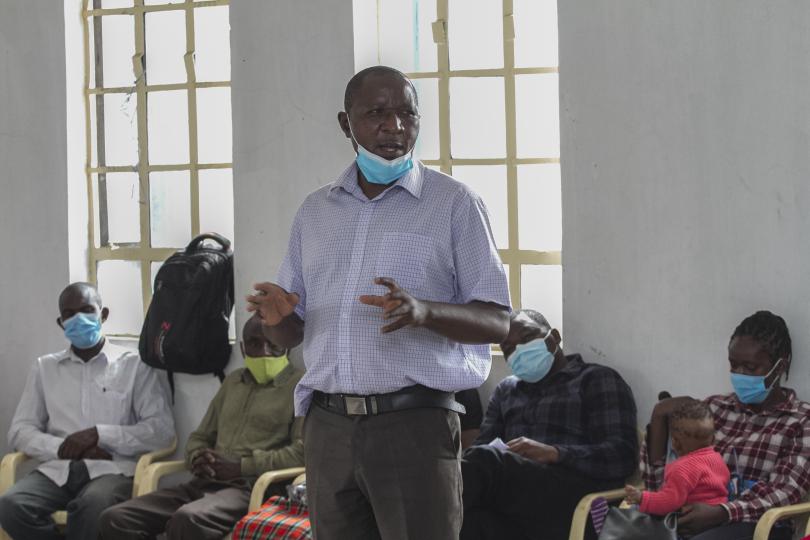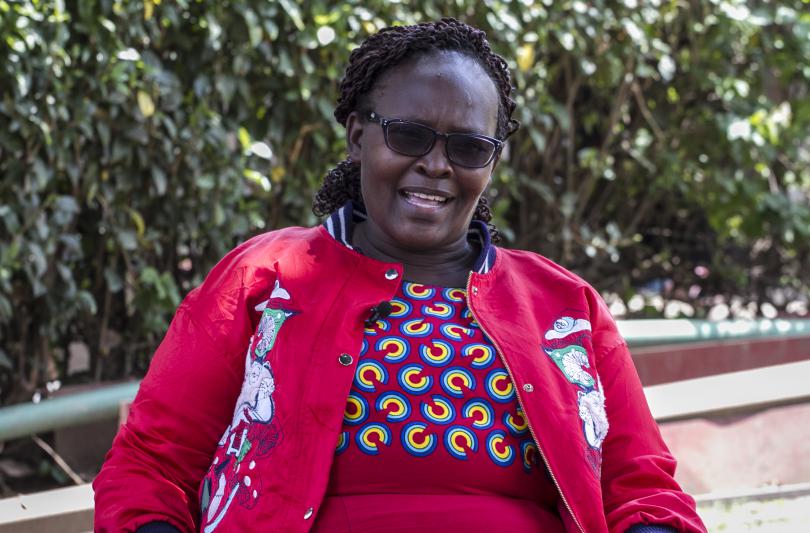HOW WE ARE ENSURING CHILDREN THRIVE THROUGH OUR ECD PROGRAMMES

By Diana Maweu
The place is Mathare North, one of Kenya’s largest informal settlements situated in Nairobi. We find a group of people gathered inside a church for an important community meeting.
A majority of those gathered here are men. The discussions center around positive parenting and its impact on young children.
All the participants, including the facilitators, are parents. At the end of the training, the facilitators can be seen engaging each and every parent, asking them what it is they have done differently since the last time they were together and the results yielded.
These days my children talk to me, it really feels good to come home from a day’s hard work to be greeted by your children and discuss how the day was for them in school. That wasn’t the case back then, one of the parents says.
I wish my children were younger. I would do parenting quite differently. Now I am sensitizing younger parents on alternative discipline for their children who are my grandchildren, an elderly participant adds.

The parents are being taken through one of Save the Children’s programmes that focuses on, positive parenting, inclusive education, child protection and safeguarding, and positive discipline to ensure that all ECD children, regardless of their vulnerabilities, learn in safe and protective environments. The trainings target parents, teachers and members of Boards of Management of select schools.
The programme is being implemented in three ECD centers in Mathare informal settlements namely Kiboro ECD Center, Valley Bridge ECD Center and Mathare North ECD Center. The programme is in line with Save the Children’s 2030 ambition which is to create a world in which all children survive, learn and are protected.

Margaret Nzuki, a positive parenting facilitator of the programme, tells us how it has been since the project started in September, 2020, and the positive results it has generated to date.
The programme has been really helpful especially to the children,” she says. “We visit schools, we talk to pupils and the feedback we get is really positive. Children love the changes they see at home and in school.
The program has also had an impact on how teachers relate with the children. Performance in schools has improved in most of the children; their confidence levels have seen a tremendous change; many can now ask questions in class without fear and even relate better with their teachers, she adds.
The program started at the peak of the COVID-19 pandemic, at a time when most families were going through difficulties. Most parents were at home – and without jobs – something that made organizing trainings an uphill task for the coordinators, as Margaret explains:
You would try talking to a parent about parent-child relationship, but then they are thinking about what they will put on the table for the family at the end of the day. Building relationships at that time was not easy.
But by keeping them closer to us, sharing the same experiences as part of the community, and helping them correct the relationship within the family and with their children, they started embracing us and they loved the results.
Margaret could not finish her conversation before telling us about Musa who was so reluctant to join the program and how far he has come from the time he joined.
"Before we introduced Musa to the male engagement program, he swore he would never serve his wife food, be involved in the kitchen or change his child’s diaper," said Margaret. "According to him, it was a taboo to do all that. But today as we speak, Musa is the one advocating for male involvement in raising children," she concludes smiling.
Cover Photo: Parents gathered for a positive parenting meeting in one of the churches in Mathare North.